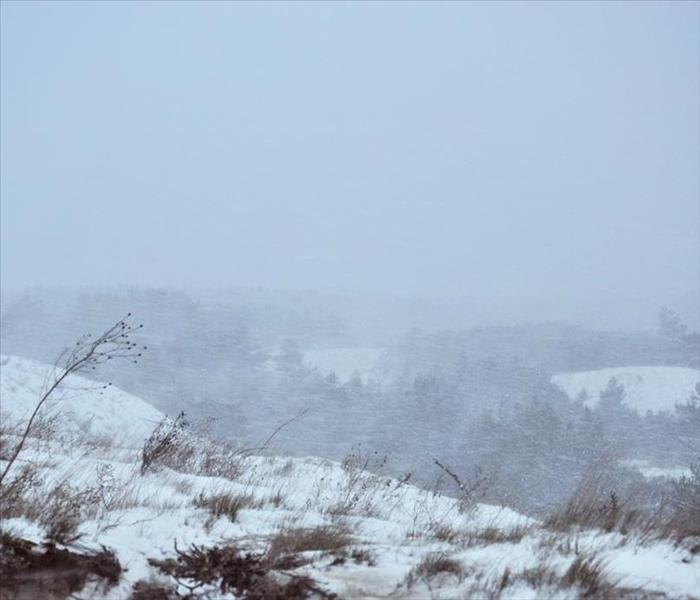What to do during and after a Missoula winter storm
1/9/2024 (Permalink)
With winter storms closing in so quickly, hopefully by now you’ve done all your winter prep work—your pantries are stocked with non-perishables, and your smoke alarms and carbon monoxide detectors have been recently checked. But what do you do when the words “Winter Storm Warning” actually appear on the forecast?
According to the American Red Cross, a Winter Storm Warning means “life-threatening, severe winter conditions have begun or will begin within 24 hours.” When you see one go into effect on your local broadcast, the first thing you should do is get yourself, your family, and your companion animals to a safe place and remain indoors; avoid travel unless it is necessary (and even then, use public transport whenever possible). If you have livestock, make sure they have access to shelter and non-frozen water. Then, stay updated; keep a battery-powered radio tuned to your local news broadcast or NOAA station to get live updates on weather conditions.
Winter storms can last for several hours or even days, which is why it’s so important to have that emergency kit well-stocked and accessible. While you and your family are hunkered down, make sure everyone keeps hydrated (this means avoiding caffeine and alcohol, which can both lead to dehydration) and eats regularly, as the body needs energy to produce heat. Storms often put stress on power systems, so conserve energy by closing doors to unused rooms and by setting your thermostat to 65°F during the day and 55°F at night.
If you must go outside during a storm, wear layered clothing, gloves, and a hat, and cover your mouth. Avoid talking and taking deep breaths to protect your lungs from frigid air, and avoid overexertion; shoveling snow is a leading cause of heart attacks in the winter, and sweating in freezing conditions can lead to hypothermia.
Even after a winter storm has ended, it’s important to stay warm and tune in to local news for travel conditions. Always think about safety first! For more details on what to do during and after a winter storm, check out https://www.redcross.org/get-help/how-to-prepare-for-emergencies.html






 24/7 Emergency Service
24/7 Emergency Service
